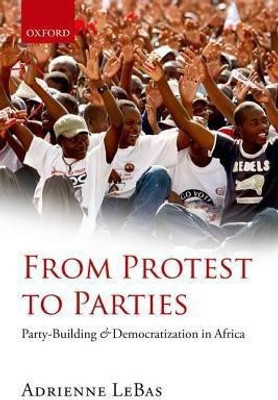From Protest to Parties(English, Paperback, LeBas Adrienne)
Quick Overview
Product Price Comparison
Why do strong opposition party organizations emerge in some democratizing countries, while those in others remain weak or quickly fragment on ethnic lines? From Protest to Parties provides an explanation for differences in opposition party strength in democratizing regimes in Africa that remain far from democratic. The book argues that strong parties benefit from pre-existing mobilizing structures that transcend ethnic and other cleavages. These mobilizing structures are a legacy of authoritarian rule. Where authoritarian states relied on alliances with corporate actors, notably organized labor, they unintentionally armed their allies, providing them with structures and resources that could later be used to effectively challenge the state. Secondly, opposition parties are more likely to maintain their organizational cohesion and the commitment of activists when they use strategies and appeals that escalate conflict and reorient social boundaries around the lines of partisan affiliation. Polarization forges stronger parties, but it also increases the likelihood of violence and authoritarian retrenchment.From Protest to Parties draws upon an in-depth analysis of three countries in Anglophone Africa: Zimbabwe, Zambia and Kenya. Though these countries share similar institutional frameworks, including electoral rules, opposition party development takes a different route in each. In addition to providing a unique window into the politics of mobilization and protest in closed political regimes, the book sheds light on how the choices of political elites affect organizational development.


